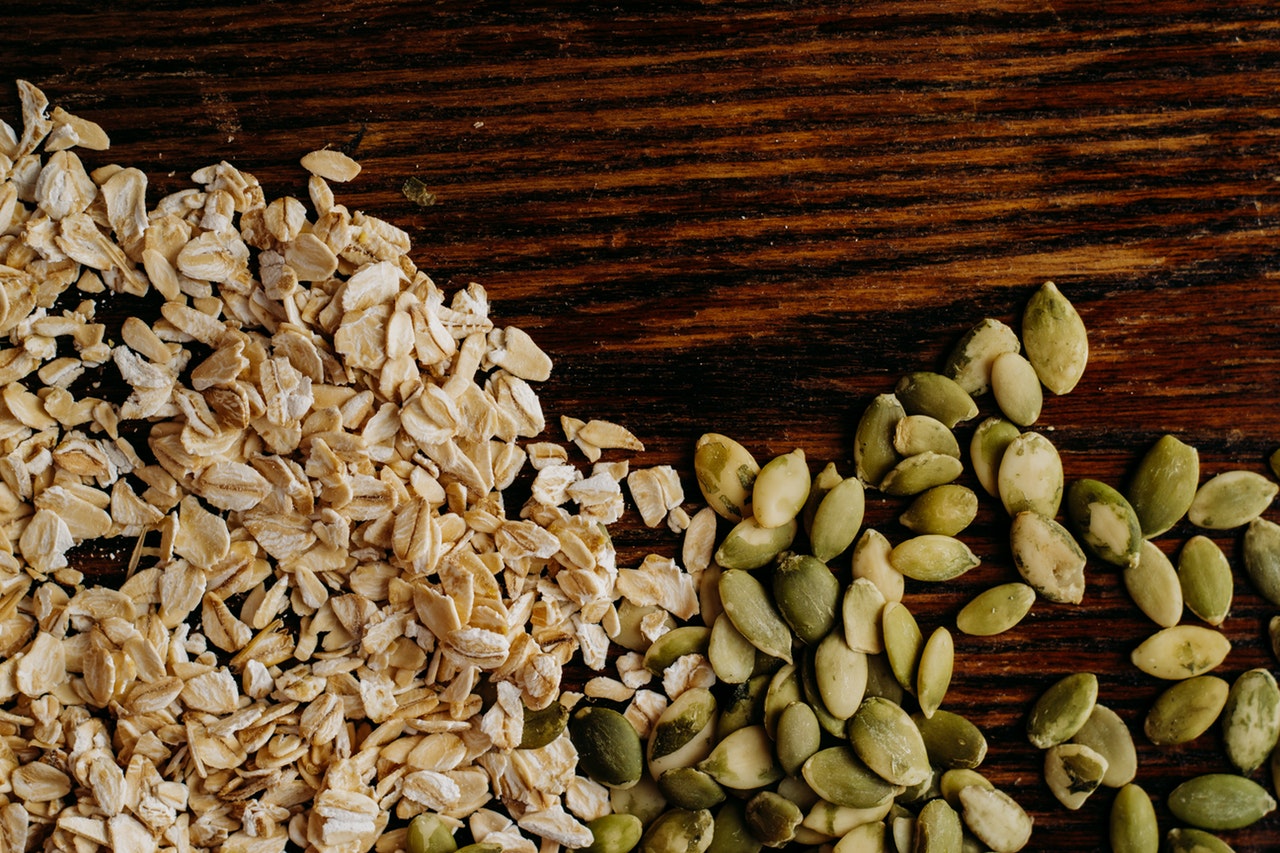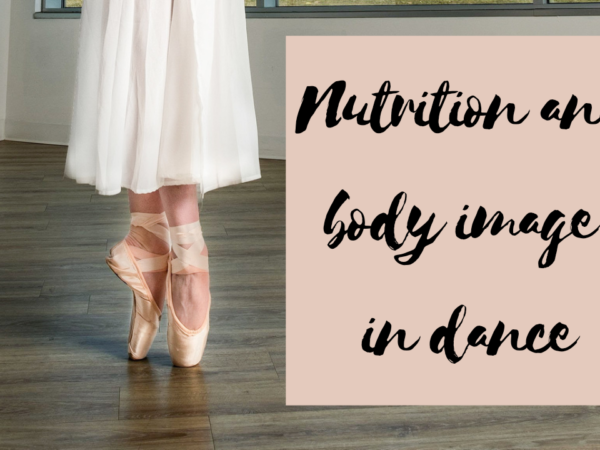There is a downside of diet culture in dance. We are going to into the way in which nutrition is sometimes taught to dancers in a way that promotes restriction and food rules. In this post, dieting refers to ways of eating and the communities and resources that promote strict food rules and calorie restriction.
What we eat affects how we feel, think, and behave. It affects our energy, emotions, lifestyle, and it influences how we view ourselves.
Food is so much more than sustenance, it has become a vehicle for self love or self loathing, an emotional crutch, or even something that causes anxiety. It is also a way to express love and care, and it is so deeply ingrained in culture and in our own memory. Food is not black and white. It is not purely scientific. It is the cinnamon rolls your grandmother taught you how to make, it is your favorite meal that your mom made for you growing up, it is that tie back to your ancestry when you live hundreds of miles away. We gather around food during celebrations, and we turn to food for comfort and solace. We are taught from a young age that foods are “good” or “bad” and that they can physically define us as an individual. Food is also political, it is business, it is exploitative of resources, and for many it is their livelihood. All of these facets are what make food so controversial. This all encompassing nature is why I am so passionate about it.
In the midst of all of these messages we are receiving about food and our bodies, one of the most prevalent ones we detect starting from an early age is this “need” to be on a diet. But it is overlooked that there is such a strong link between dieting, relationship with food, and body image. Here are some pretty sobering statistics:
- Weight regain is the typical long-term response to dieting, rather than the exception
Source: Why do dieters regain weight? Calorie deprivation alters body and mind, overwhelming willpower. American Psychological Association, Retrieved May 17, 2019 (https://www.apa.org/science/about/psa/2018/05/calorie-deprivation)
- 75% of American women endorse unhealthy thoughts, feelings or behaviors related to food or their bodies
Source: Three Out Of Four American Women Have Disordered Eating, Survey Suggests, Science News, Retrieved May 17, 2019, from (www.sciencedaily.com/releases/2008/04/080422202514.htm)
- Almost half of American children between first and third grade want to be thinner and 50% of girls ages 9-10 are dieting
Source: Something “Needs Improvement,” But It’s Not Your Body, Retrieved May 17, 2019, from (https://www.nationaleatingdisorders.org/blog/something-needs-improvement-its-not-your-body)
- 35-57% of adolescent girls engage in crash dieting, fasting, self-induced vomiting, diet pills, or laxatives
Source: Something “Needs Improvement,” But It’s Not Your Body, Retrieved May 17, 2019, from (https://www.nationaleatingdisorders.org/blog/something-needs-improvement-its-not-your-body)
- 35% of “normal dieters” progress into habitual dieting (disordered eating), and as many as 25% advance to full-blown eating disorders
Source: Something “Needs Improvement,” But It’s Not Your Body, Retrieved May 17, 2019, from (https://www.nationaleatingdisorders.org/blog/something-needs-improvement-its-not-your-body)
If diets don’t work and cause social, emotional, mental, and physical trauma, then why are they still so popular?
We are in a society that loves quick fixes, a ten step plan, and a guarantee. In a fast paced and unintuitive world, out-sourcing nutritional knowledge and habit formation to books or magazines with photoshopped images of the “ideal” body type and a one size fits all diet plan seems like the easiest and most direct way to reach our goals. These curated diet plans take the research, decision making, and effort off of your plate so we can continue in the busyness of life. All we have to do is follow the neatly arranged shopping list and 5 recipes and we will get the body you desire in no time! And diets often work at first, any time you restrict caloric intake will lead to initial “weight” loss (I hold the “weight” term loosely because it’s often a misconception that it’s fat loss when it can actually be water weight and even muscle loss). After a few weeks, maybe your physique has shifted a little, but you might feel hungry, bored, uninspired. Self worth is tied to a number on the scale, not how your body actually feels, so signs such as hunger, loss of energy, and a worsening relationship with food are ignored or even go undetected. Cravings hit, your energy drops, and all you can think about are those “bad” foods. And so your body, starved of energy, yo-yos back the other way. It’s this cycle of restriction, weight loss, loss of motivation, binge, weight gain, self-disgust, dread, motivation, repeat. Dieting relies solely on motivation and willpower, and ignores the body’s wants and needs. It’s exhausting.
It can be frightening looking at the statistics above and also see how the effects of dieting have impacted those around me. During my pre-professional ballet years, I was never given information on the effects of dieting and calorie restriction. Unfortunately, diet culture, especially in the form of restriction, is still prevalent in dance. There is a huge downside to the diet culture in dance. I remember receiving talks where I was told that “calories are calories” no matter what you eat, but just “make sure you don’t exceed this amount of caloric intake so that you stay thin”. Food was something you had to watch, because too much could cost you your status, and a tight control over what you ate was something that was praised. Ballet still prizes certain body types over another, and ignore the fact that almost no one can naturally and healthfully adhere to this standard. Topics such as nourishing your body with whole foods, fueling your body as an athlete, adopting an intuitive approach to eating, body image, and relationship with food were never discussed. To be honest, repairing the relationship I have with food and with my body is still a daily task for me, and is why I want to help change the culture of dieting and body image in the dance world.
So let’s talk a little bit more about the downside of diet culture in dance, and how it affects dancers physically, mentally, and emotionally.
Dieting leads to energy restriction because it promotes calorie deficits. This type of restrictive eating comes with fatigue, which affects your physical ability and performance level, and is a risk factor for injuries. Counting calories provides a false sense of control and ties you down to an inadequate calorie limit for your body to function optimally. Diets not only restrict how much you eat, but also what you eat, limiting intake to certain types of foods, which increases the likelihood of nutrition deficiency and takes away the ability to listen to your body for its hunger and fullness cues and its necessary cravings. This also creates food rules in terms of labeling foods as “good” or “bad” (i.e. “I can’t eat too many carbohydrates”, “eating fat makes me fat”, “I can’t eat before 10am”, “I am not allowed to snack”), perpetuating a poor relationship with food. In turn, this leads to disordered eating patterns that completely ignore your body’s needs. Calorie restriction can interfere with your metabolism and hormone levels, which can end up affecting your body not only while you are dancing, but for years to come after you retire or change your eating habits.
Dieting and diet culture can also lead to mental side effects like loss of concentration and negative self talk. It takes away the ability to eat intuitively and practice self love and gratitude towards our body. Ballet classes and rehearsals become harder to get through both physically and mentally from the decrease in energy and the focus that is placed on your body’s desire for sustenance. Dieting focuses on your physical appearance as a proof of self discipline or failure, and broken food rules lead to guilt and shame if you slip up. When your body does not have enough energy available to carry out its required tasks, it will up-regulate your hunger signals, especially towards sweet foods. The stress of not allowing yourself to eat certain foods can drive you to obsess over those foods and overeat them once they are available. When this happens, it is so easy to fall into self-criticism and a feeling of distrust around food choices. When things don’t go according to plan, it can make you feel anxious and draw your attention away from the big picture and long term goals. Ultimately, it takes away trust of your body and its cues
We are in this together
This is not the most fun, positive topic to talk about, but it needs to be addressed. Its messy, ugly, and often fought to be kept hidden, especially in the performing arts. Almost every dancer has struggled with their physical appearance, no matter how “perfect” their body is, and this is perpetuated by the nutritional information, lack of guidance, and negligence in addressing issues such as a dancer’s body image and relationship with food. While it is not talked about freely in the dance world, there is a downside to diet culture in dance. This post is meant to bring awareness to diet culture in our current society as well as in the realm of dance, but there is a way to change this. The alternative is eating intuitively with a holistic approach in relation to the nourishment of the body and the mind. It meets your energy and nutrition needs through foods that also make you feel comfortable, satisfies, inspired, and fulfilled, and gives your body the fuel it needs to thrive. It involves approaching eating with kindness and curiosity, and tears down food rules to allow for body awareness and mindfulness to happen. Intuitive eating allows you as an individual to listen to your cravings and needs and empowers you to make your own food choices and develop compassion and love for your body. I cannot wait to share more about intuitive eating and a mindful approach to food on the next post!






Hi there I always spent my half an hour to read this website’s posts daily along with a cup of coffee. gracias
I was suggested this website by way of my cousin. I am now not positive whether or not this put up is written through him as nobody else understand such special about my problem. You are amazing! Thank you!
Thank you so much for your comment! That means so much to me!
I’ve been surfing on-line greater than 3 hours today, yet I by no means found any interesting article like yours. It’s lovely price enough for me. Personally, if all webmasters and bloggers made good content material as you did, the net shall be much more useful than ever before. “Baseball is 90 percent mental. The other half is physical.” by Lawrence Peter Berra.
Thank you so much! I definitely find that so many things are mostly mental and not necessarily physical.
Hello. remarkable job. I did not anticipate this. This is a splendid story. Thanks!
Thank you!!!
Thankfulness to my father who stated to me about this web
site, this website is genuinely awesome.
excellent post, very informative. I wonder why the other specialists of this sector don’t notice this. You must continue your writing. I am confident, you have a great readers’ base already!
You ought to take part in a contest for one of the most useful websites on the
internet. I am going to highly recommend this website!
I’m amazed, I have to admit. Seldom do I come across a blog that’s both equally educative and amusing, and without a doubt, you’ve hit the nail on the head.
The issue is something not enough people are speaking intelligently about.
Now i’m very happy I came across this during my search for something relating to this.